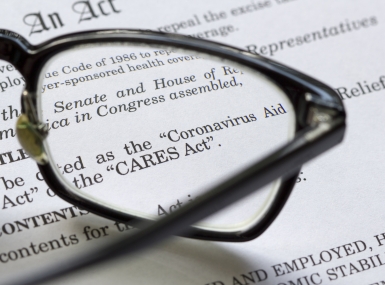HHS renews Public Health Emergency Declaration to address national opioid crisis
Author

Blaire Bryant
Upcoming Events
Related News

Key Takeaways
On March 18, the U.S. Department of Health and Human Services (HHS), under the direction of Secretary Robert F. Kennedy, Jr. renewed the public health emergency (PHE) declaration to address the ongoing opioid crisis, extending critical federal support for coordination, treatment expansion and research efforts. While overdose deaths have declined by 25.5 percent over the past year, synthetic opioids like fentanyl continue to drive fatalities, with approximately 150 Americans dying daily from overdoses.
Importance
The Public Health Emergency (PHE) declaration, issued under Section 319 of the Public Health Service Act (Pub. L. 78–410), grants the HHS Secretary expanded authority to respond to public health crises such as disease outbreaks, bioterrorist attacks and the opioid epidemic. It lasts for 90 days but can be extended as needed.
Key actions enabled by the declaration include:
- Funding and Resource Allocation – Grants access to emergency funds; enables rapid response measures; and facilitates coordination across federal, state and local agencies.
- Regulatory Flexibility – Allows waivers for Medicare, Medicaid, Children's Health Insurance Program (CHIP), Health Insurance Portability and Accountability Act (HIPAA) and other healthcare regulations to ensure continued care delivery.
- Support for Research and Treatment – Accelerates medical countermeasure development, supports substance use disorder treatment expansion and enhances public health data collection.
- Emergency Workforce and Liability Protections – Permits temporary hiring of personnel, reassigns state and local public health staff and limits liability for healthcare volunteers.
- Supply Chain and Telehealth Adjustments – Eases restrictions on drug distribution, modifies telemedicine rules and grants states access to federal supply schedules.
The renewed declaration, originally issued in 2017, allows HHS to sustain key flexibilities, such as expediting substance use disorder treatment programs and enhancing public-private collaboration.
Impact on counties
Counties are essential in managing public health emergencies as owners and operators of systems like emergency rooms, crisis stabilization units, behavioral health facilities and jails, all of which play a critical role in opioid crisis management, addiction treatment and recovery services.
Extending the PHE declaration allows counties to continue partnering across all levels of government to sustain progress in prevention, treatment and recovery efforts, saving lives and easing the burden on local healthcare and criminal justice systems.
Featured Initiative
Opioid Solutions Center
NACo's Opioid Solutions Center empowers local leaders to invest resources in effective treatment, recovery, prevention and harm reduction practices that save lives and address the underlying causes of substance use disorder.









